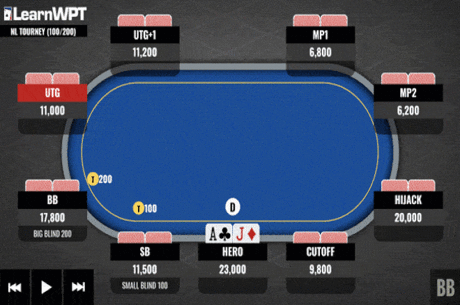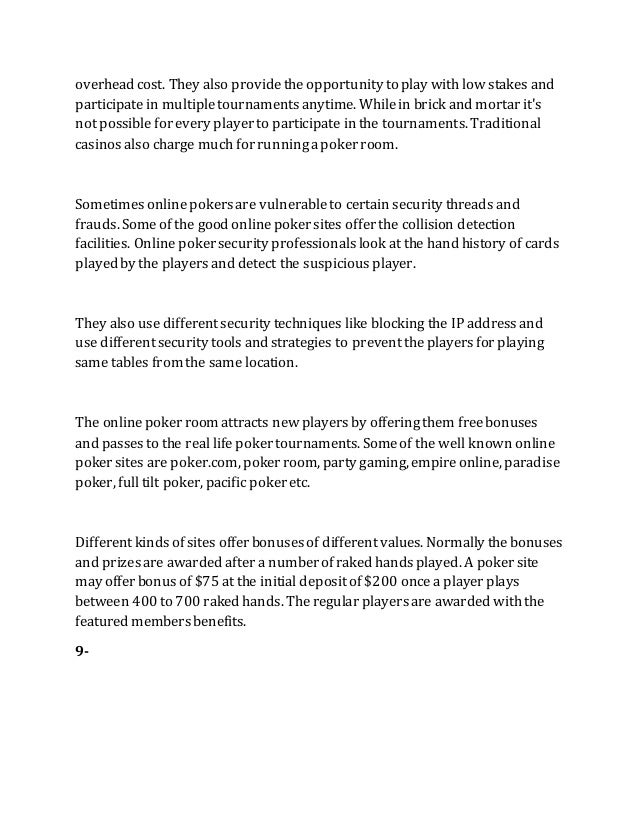- Should You Play Multiple Online Poker Tournaments At Inception
- Should You Play Multiple Online Poker Tournaments At Incentives
- Should You Play Multiple Online Poker Tournaments At Incense

If you’re new to the world of online poker or simply enjoy playing within your limits, the concept of a freeroll tournament simplyseems too good to be true.
No Limit Texas Hold'em. No Limit Mode is a tournament-style Hold 'em poker game geared towards the more serious poker player. In this mode, players stake once and play until only player remains. Furthermore, betting is wide-open; the user can raise up to his entire stake at any time! Four players are required to start a game.

And that’s because it is…
For those that don’t know, a freeroll tournament is one which doesn’t require an entry fee of any sort in order to play. That’s right, free poker – so what’s not to love?
Well, poker is a game that fundamentally revolves around the concept of risk and reward. And with no skin the game, as gamblers are prone to say, playing a freeroll tournament is a far cry fromreal poker.
Just ask Chad Holloway, a longtime veteran of the poker media industry who isn’t a slouch on the felt in any respect. Holloway bagged a gold bracelet at the 2013 World Series of Poker (WSOP), andhe’s accumulated more than $163,000 in live tournament earnings – all while playing part-time.
Writing in a guide on how to beat freeroll tournaments, Holloway penned the following passage which speaks to the heart of why these special events aren’t exactly poker as you might know it.
“With many inexperienced players and nothing to lose, the first few minutes sees a large chunk of the field go out with crazy hands and all-in preflop action. So sit tight initially.
That doesn’t mean you can wait too long – we said ‘first few minutes’ not ‘first few levels.’
The all-in craziness isn’t defined by blind levels, but by a lot of players in small poker freerolls who are looking to accumulate a big stack early or just go out.
Don’t bother trying to play ‘real poker’ in the first few minutes; just fold everything bar big pairs, and spring into action when things calm down.”

Just like Holloway says, freeroll poker and real poker are two completely different pursuits. Without their own money on the line, your opponents can simply click buttons and get their chips inholding any two cards, turning the pure strategy game of Texas Hold’em into nothing but a crapshoot.
You’ll find dozens of daily freeroll tournaments littering the schedules of your favorite online poker rooms, which can make the events seem like an attractive option. And for players who findtheir bankroll tapped out at the moment, getting an hour or two of tournament play in free of charge makesperfect sense – at first glance, anyway.
But in reality, freeroll tournaments just aren’t worth your time or effort. Read on to learn why entering freeroll events is a mistake, complete with advice from successful pros like Chris“Jesus” Ferguson and Chris Moorman, along with Holloway.
Bullies are a fairly common subspecies of poker player. You can’t spend too long at the tables without running into one. They bet and raise with reckless abandon. Playing against them can be scary, like riding a bucking bronco.
Let’s talk about three general strategies for playing against the poker bully, two of them wrong, one of them right.
One temptation is to try to out-bully the bully, to punch back even harder than he is hitting. The problem is that you are pretty much reduced to flailing away wildly, kind of like Ralphie in A Christmas Story when he finally loses it and goes nuts on the bully Scut Farcus. It might work, but it’s risky and costly. In the poker setting, it also leaves you wide open to being exploited by other players who are smart enough to wait to trap both of you with a monster when you’re trying to out-bully each other with mediocre holdings.
A second temptation is to go into highly defensive mode — that is, to tighten up even further, waiting for the rare premium hand before playing back at the bully. There are two problems with this. First is that you’re missing out on lots of money that the bully is putting into pots with weak hands which you could win if you were braver. The second is that even minimally intelligent bullies will figure out that the guy who punches back once an hour is doing so only when he has a big hand. He’ll just fold, giving you one pathetic little pot for all your patience and consternation.
The third option — and the correct one — I learned from Mike Caro’s writings. In fact, I think it’s the single most profitable piece of poker strategy advice I’ve ever encountered:
Should You Play Multiple Online Poker Tournaments At Inception
A poker bully is by definition too aggressive. In order to be a bully, he must make a fundamental mistake — he must bet and raise too often. When an opponent makes a mistake, there’s always a way to take advantage. Here’s how to take advantage of a poker bully:
Call more often. Because a bully is betting more hands, it’s obvious that he must be betting more than just the ones you would normally bet. This means you can relax your calling standards and still make a profit.
Bet less often. A key to defeating a poker bully is to let him hang himself. Since his major mistake is betting too liberally, you should give him every opportunity to defeat himself by repeating that mistake. You should check and call frequently. You should also bet less often when a poker bully checks into you, because a bully likes to check-raise a lot. Therefore when he foregoes the opportunity to be a betting bully, you should be wary of a check-raising bully. Just check along.
When you do these two simple things, the bully has a losing expectation against you. And, in the long run, he cannot win. Sometimes it’s tempting to “out bull” the bully by being even more aggressive than he is. That’s the wrong answer. You can’t win at poker by exaggerating the same mistake an opponent is making.
Read the whole article on Caro’s web site here.
Can such a simple formula actually work? Yes. Absolutely it can.
I fondly remember one poker session in which a bully figured prominently. I joined the game and watched him raise the first five hands in a row. He was running over the table, cowing everybody into conceding him pot after pot while almost never having to show a hand.
When a seat opened up two to his left, I made a beeline for it. Caro’s formula is much easier to apply when you have position on the bully.
Then I just started calling him down with medium-strength hands. This took some courage, because he tended to bet big when he was bluffing, since he wanted to induce folds, and I usually try to avoid playing big pots with just one-pair kind of hands. But those are often enough to beat a guy who’s betting with nothing.
Eventually he gave up and said, “I’m done trying to bluff you.” But it was too late. In a $1/$2 no-limit hold’em game I had made $399 in under two hours — almost all of it from the bully’s stack. He had lost the stack he’d had when I sat down, plus two more buy-ins.
I was not the only one to profit. The other players caught on to what I was doing, and copied it. Somebody was calling down the bully every time he tried to win a pot by hammering at it with big bets. Once a bully has been shown to be just a weakling in a scary disguise, all of his former victims are eager to get their licks in.
I love the simplicity of the strategy of just calling the bully. Of course, sometimes he gets lucky and hits something big, and you look pretty foolish calling three times with not much of a hand. But in the long run, those instances are far outweighed by both the monetary effect of his too-frequent bluffing and by the psychological effect that you have on him by not backing down to his attempts at intimidation.
In a Card Player magazine column a few years ago, Bob Ciaffone penned a wonderful apothegm that neatly sums up the same concept in a different way:
“We know you can fight fire with fire, but what is wrong with fighting it with water sometimes?”
Robert Woolley lives in Asheville, NC. He spent several years in Las Vegas and chronicled his life in poker on the “Poker Grump” blog.
Should You Play Multiple Online Poker Tournaments At Incentives
Get all the latest PokerNews updates on your social media outlets. Follow us on Twitter and find us on both Facebook and Google+!
Should You Play Multiple Online Poker Tournaments At Incense
Tags
no-limit hold'emcash game strategytournament strategyMike CaroBob CiafffoneRelated Room
888pokerRelated Players
Mike Caro